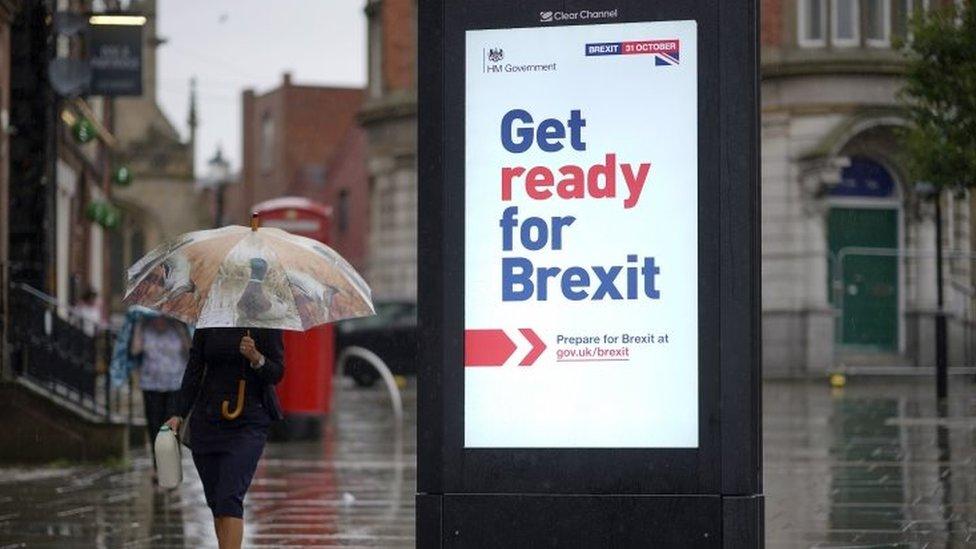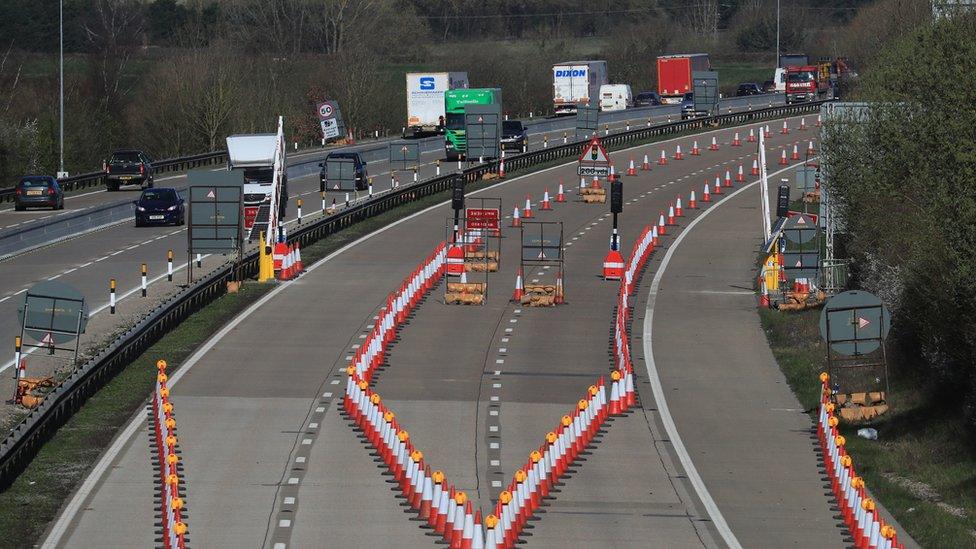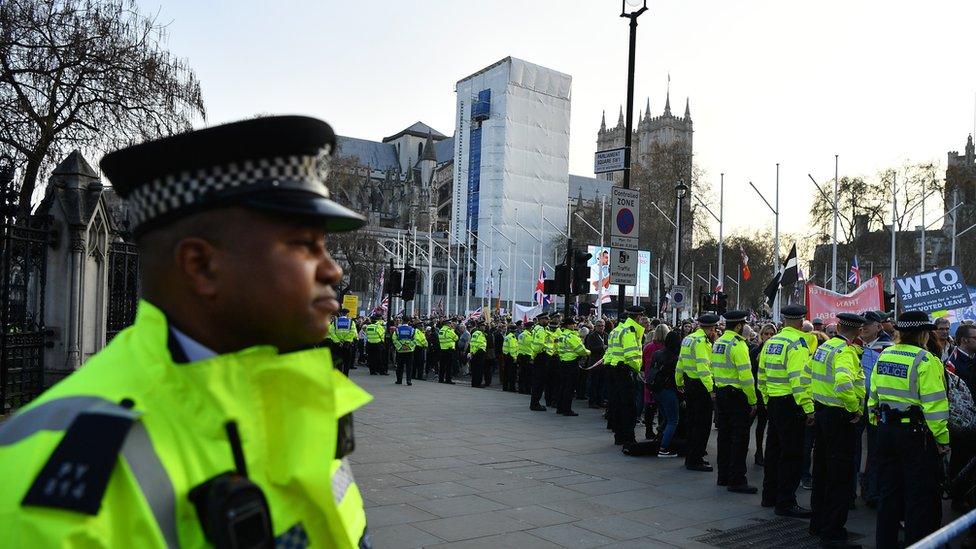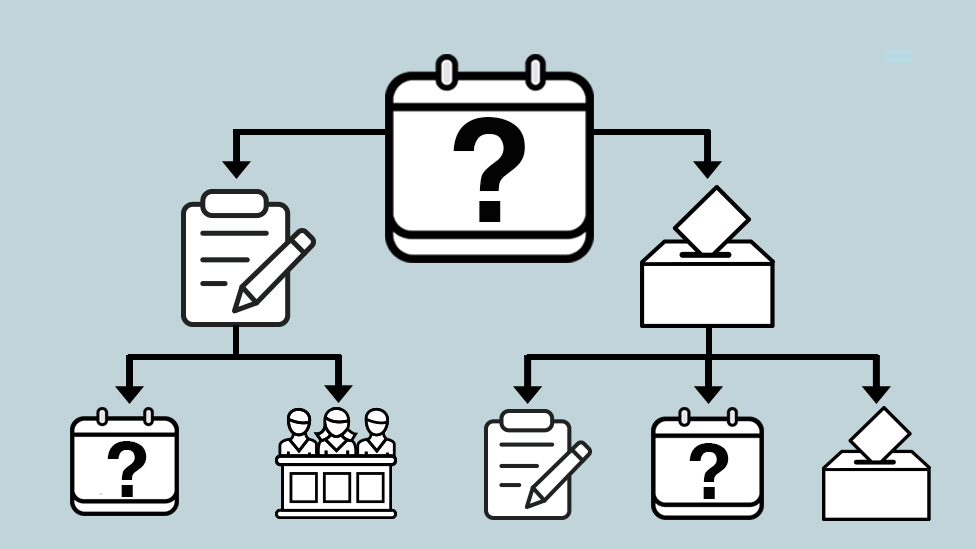Brexit: Five things the government has stopped
- Published

The EU's decision to grant a Brexit extension until 31 January this week means the UK will not leave the bloc on Thursday.
It has led the government to "stand down" Operation Yellowhammer, its contingency plan for a no-deal Brexit, as the risk of leaving without an agreement reduces.
While it said planning for no deal was continuing, here are some aspects that have stopped - at least for now:
1. 'Get ready for Brexit' ads

"Get Ready for Brexit" ads ran across billboards, TV and online
The red and blue adverts advising citizens and businesses to log on to the government's Brexit website have been "paused".
The campaign, which began in September at a reported cost of £100m, was modified earlier this month to downplay Britain's then-planned exit date of the 31 October.
Experts said at the time of its launch that the scale of the campaign would rival National Lottery advertising. "Get ready" ads ran across websites, on TV, radio and billboards.
The government would not comment when asked how much of the campaign's budget had been spent, saying all spending was subject to "routine government transparency".
2. Operation Brock

Operation Brock sees one side being used only by HGVs heading to cross-Channel ports
A plan to manage traffic congestion on a motorway in the event of a no-deal Brexit was stood down just a day after coming into force on Monday.
Operation Brock in Kent saw one side of the M20 being used only by HGVs heading to cross-Channel ports.
All other traffic was restricted to a contraflow system on the opposite carriageway.
A Department of Transport spokesman said the scheme would be stood down "as soon as possible".
3. Those 50p Brexit coins

The 50p coin was similar to this previous design - but with the 31 October departure date
Commemorative coins minted to mark Brexit on 31 October will be "recycled" after the government accepted the fresh delay.
The Royal Mint had been asked to produce new 50p pieces featuring the UK's scheduled departure date.
However, now the coins are to be scrapped as the UK will not leave the EU this week.
The Treasury said new coins would be made to commemorate Britain's eventual exit.
4. Daily planning for civil unrest

Police previously warned politicians and campaigners to take care not to "inflame" Brexit tensions
A spokeswoman for the National Police Chiefs' Council told the BBC changes might be made to the regularity of reports regarding police plans for potential civil unrest.
She said reports that were being made on a daily basis to government might now be sent every week instead.
However, the spokeswoman said an existing EU exit briefing unit would continue to gather intelligence and other information from police forces regarding civil unrest and collate it for use across government.
5. Co-ordinating policy on 'severe' border disruption
Would you notice if you crossed the Irish border? (Video from 2017)
A committee dedicated to bringing together the government's response to "severe" disruption for people and goods at Britain's borders in the event of a no-deal Brexit will no longer meet.
The Border and Supply Chain Impact Group has also been "stood down" by the Cabinet Office, the BBC understands.
The National Audit Office described, external the impact group as being "responsible for co-ordinating policy on matters in relation to [disruption to people crossing the border and disruption to key goods crossing the border] and the collation of supporting information and data".
Overall, the BBC understands that so far £6.3bn funding has been committed for general Brexit preparedness.
- Published28 October 2019
- Published13 July 2020
